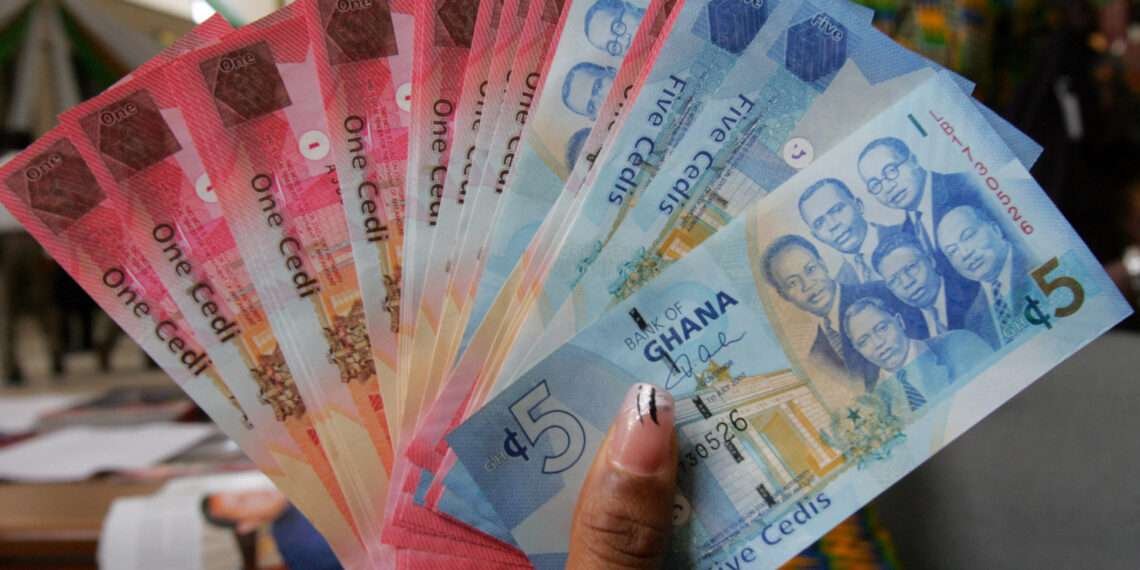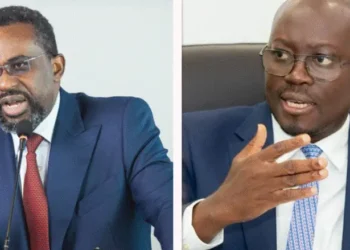Borrowing has emerged as one of the main coping strategies that households adopted to cope with the negative effects of COVID-19 since the country recorded its first case in March 2020.
According to the third wave of the COVID-19 Households and Jobs Tracker survey conducted by the Ghana Statistical Service (GSS), approximately eighty-seven percent (86.7%) of households used some sort of coping strategy to deal with the negative effects of COVID-19 since March 2020.
“The most common coping strategies included relying on savings (43.0%) and reducing food consumption (42.9%). Respondents reported that most types of coping strategies were used more often in 2020 than in 2021. The exception to this is the borrowing from friends and family and the use of credited purchases”.
GSS
When asked about what shocks households experienced due to COVID-19 since March 2020, 73.4% indicated that they experienced an increase in the price of major food items consumed and 46.5% indicated that they were affected by the increase of the price of inputs.
The survey further revealed that 58.7% of households were affected by the school closures, but the majority (92.1%) of households indicated that this shock occurred in 2020. Other shocks were felt more evenly throughout 2020, and the first and second half of 2021, the GSS stated.
Household income yet to recover
The survey discovered that two-thirds of households’ income has not yet recovered to pre-COVID-19 levels. The GSS highlighted that only 26.7% of respondents indicated that their total household income stayed the same as compared to the period before COVID-19 (March 16, 2020).
“5.1% of respondents indicated that their total income increased, while 68.2% indicated that their household income decreased. Of the different sources of income, non-farm family business income saw the biggest reduction. 77.3% of households with income derived from a non-farm family business saw a decrease in income and only 4.4% reported an increase in income”.
GSS
Further details show that the 4.2% of households who got income from pension saw the smallest change of this income source. Majority (76.7%) reported no change in pension income, 13.0% a reduction and 10.3% an increase.
On COVID-19-related expenditure, the survey revealed that the median expenditure on PPEs (masks, sanitizers, face shields, etc.) per household on the seven days before the interviews was GH₵12.0 with a mean expenditure of GH₵22.0. Median expenditure was slightly higher in urban areas (GH₵14) than in rural areas (GH₵10.3). Of the zones, both the median (GH₵15) and mean (GH₵25.3) expenditure was the highest in the coastal zone.
Concerning Food insecurity, households in the Savannah Zone were observed to experience high levels of food insecurity in the country. The GSS stated that on all eight questions around food insecurity, households in the savannah zone reported reported high rates of food insecurity.
On all indicators, rural households were less food secure than urban households and the coastal zone was more food secure on all indicators than the national average with the exception of the percentage of households that indicated they ran out of food, the GSS highlighted.
The Wave 3 of the survey
The survey consisted of two modules. Module A focused on the (economic) impact of the COVID-19 pandemic on households and Module B on the impact on children and family situations. Households were only asked to complete module B if they completed module A and if there were children (0-17 years) in that household.
Phone numbers of respondents were collected through the contact details of an earlier nationally representative survey (Ghana Living Standards Survey Round Seven, GLSS7).
A total of 7,999 households were sampled from the GLSS7 respondents with phone numbers and contacted during wave 1.
During this wave of the survey, the sample size totaled 2,370 households for Module A, of which 1,684 also completed module B. The results in this brief have been weighted using propensity weights.
Households from all 16 regions were included and interviews were conducted in local languages from December 1 to December 13, 2021. Borrowing Borrowing Borrowing
READ ALSO: Ghana Fails to Make Progress in Corruption Fight- CPI Report





















